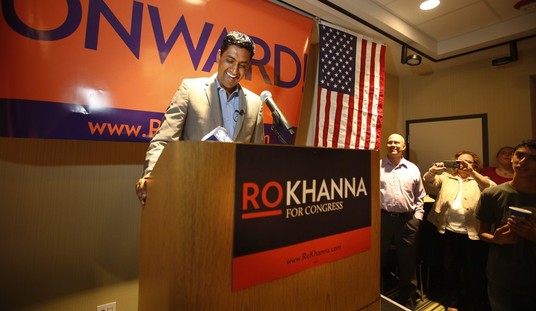Young voters who self-identify as independents draw a tight connection between Washington’s economic policies and the lack of jobs they have experienced firsthand. Among independent voters aged 18 to 29, 55 percent agree that if taxes on business profits were reduced, companies would be more likely to hire. That’s according to a poll recently commissioned by Generation Opportunity, a nonprofit, non-partisan organization that seeks to engage young adults in a discussion about the immediate and long-term economic challenges that face the nation.
An even larger majority of millennial independents (59 percent) recognize that the economy grows best when individuals are allowed to create businesses without government interference. Given the high degree of “government interference” that has characterized this administration (the stimulus, bailouts, the health care law, etc.), it’s no wonder, then, that 59 percent of millennial independents believe the United States is pretty seriously on the “wrong track,” while only 22 percent say the United States is headed in the “right direction.”
Millennials were also highly disappointed with Washington’s handling of the debt ceiling crisis. An informal Facebook poll on Generation Opportunity’s Facebook page, Being American, showed that, as of today, 60 percent of 6,255 respondents opposed raising the debt ceiling at all — and the poll question provided options to raise the debt ceiling with spending cuts, with tax increases and with a combination.
“I think millennials have the clear and demonstrated ability to make connections between what is going on in their own life and what the federal government is doing, not only in terms of what it does for their ability to find a job, but also what it does for the country on a world stage,” said Paul Conway, president of Generation Opportunity and former chief of staff for the U.S. Department of Labor under Secretary Elaine Chao. “For leaders in both parties, it’s a very clear signal that your action or inaction is being watched by the people who elected you and the people who hold you accountable.”
So, what will millennial discontent mean for the 2012 elections? Past polling data shows some of the college-aged crowd won’t be quite as keen to vote for President Barack Obama a second time around. The numbers from Generation Opportunity don’t speak to that — but they do reveal that millennial voters will think critically before they cast their votes. Sixty percent indicated that in 2012 a candidate’s position on issues and a record in office will be most important when casting their vote, while just 4 percent indicated a candidate’s charisma and likeability is most important. Perhaps even more importantly, 60 percent agree that young voters in 2012 will learn more about the policy positions of the presidential candidates than they did in 2008.
In 2008, President Barack Obama made history by meeting young voters where they were — online. As Conway explains it, reaching out to youth voters was nothing new — presidents from Bill Clinton to Ronald Reagan to JFK to FDR all made youth outreach a hallmark of their campaigns — but the way in which Obama connected with millennials was innovative.
But the way his campaign highly targeted millennials in 2008 might actually backfire in 2012, as youth voters might have begun to feel like they were “used” for their votes and not their input.
“If you go out as a political campaign and you actively seek to engage a demographic and you do that through technology and messaging and, then, when you go from being a candidate to actually governing, if that constituency that you talked to does not believe they’re still being heard, you’ll create dissonance in that target audience,” Conway said.
And this time around, Obama won’t be the only active political force to target young voters online. Generation Opportunity operates on a strategy that combines advanced social media tactics with proven field tactics to reach Americans 18 to 29. Its first major project, the “Being American” Facebook page that featured the poll about the debt ceiling, already sees a lot of activity, as voters in my age bracket respond to questions, share links and sound off about their lives and the issues that most concern them. In fact, the site has already amassed a fan base of more than 860,000 and has drawn more than half a million likes and comments in the first bit of its existence.
But unlike a political candidate, Generation Opportunity doesn’t seek anything in return from youth voters — other than that they think through issues themselves.
“What we’re doing is taking the mirror and putting it in front of them, asking them what they think and enabling them to draw their own conclusions over time,” Conway said.
Conway said it’s a hopeful thing for our country that millennial voters will make up 38 percent of the electorate by 2020 because they’ve already proved themselves adept at consuming information and drawing thoughtful conclusions.
I think Conway is right. As a millennial myself, I find the work of Generation Opportunity extremely hopeful. As I’ve written before, I tend to think the pragmatic, independent bent of millennials is a placeholder. Millennials might not be willing to commit to a stated ideology at this point, but they’re perfectly willing to commit to policy proposals when they’re convinced of their effectiveness. What Generation Opportunity is proving is that, as millennials receive information, they come to logical conclusions that will likely eventually coalesce into a coherent worldview. Whether that worldview is more conservative or more liberal will depend on how well each side articulates underlying principles.







Join the conversation as a VIP Member